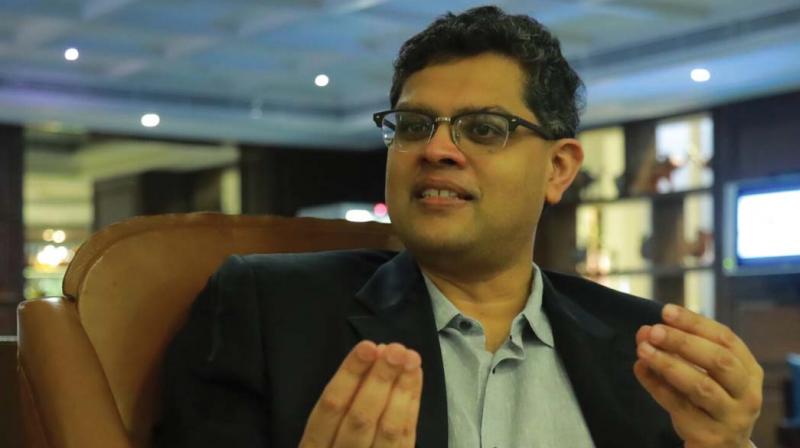Tech to replace doctors: Researcher
The smartphone may emerge as the major platform through which healthcare will be accessed and consumed.

Kochi: Doctors, beware. It’s not just an apple a day that could keep you away; it could be an app, too. Healthcare informatics--big data coupled with artificial intelligence—is making big advances that will offer patients effective and state of the art care, according to a Harvard Medical School Researcher. Titans of the digital world such as Google and Amazon are already into it and rapidly encroaching a space that was considered the domain of medical specialists. “A computer with data on millions of scan reports will be able to make accurate and reliable diagnosis, sometimes even without physician involvement” Dr Ajith J. Thomas told DC.
“Artificial intelligence which utilizes machine learning or use of sophisticated algorithms will make auto diagnosis possible using a combination of imaging, data from medical records and lab results” “Talking to a computer with voice recognition software may replace an actual visit to the doctor’s clinic. Doctors may need to stay nimble to adapt to the changing circumstances and figure out how to stay relevant in this new paradigm.” Dr Thomas, who hails from Kottayam, was in Kochi to attend #FUTURE meet.
It also means more democratisation of healthcare where the patient will be the focus, and not the health care provider such as hospitals and doctors, he said. Patients will have increasing access to their healthcare data and the ability to analyze what it means and how to modify their lifestyles using simple app like solutions which would be available via smartphone. The smartphone may emerge as the major platform through which healthcare will be accessed and consumed. “It would be cost-effective, too.”
Chronic diseases such as diabetes which incur major costs will be managed better using these technologies. Dr Thomas, along with his Harvard team, is now associating with a global technology major to set up a neuro science centre for artificial intelligence. “We are working with the company to come up with products.” He, however, refused to elaborate on the project. The two big overarching themes in medical research now are molecular biology, genetics and genomics that directly help a doctor offer new therapeutic options to the patient, he said. Gene editing techniques such as CRISPR will eventually eradicate diseases such as sickle cell diseases and other hereditary diseases “Then we have digital technology which can generate information,” he said.
“Here, the data, big data, is analysed with the help of artificial intelligence. There will be layers of data…lab data, image data… Then you need an intermediary to put them in an understandable format for the doctor. Such app like products, could be used even by a patient.” For example, he said, an app that can predict a response to psychiatric treatment based on eye movement or other activity parameters may be possible.
A push for artificial intelligence started in the 70s but it lost steam in the succeeding decades due to lack of computing power. “It’s now back to change the way we approach healthcare,” he said. This development offers big opportunities for start-ups, he said. “There are more than 1000 start-ups in Boston alone working in the healthcare sector,” he said. Kerala is a fertile ground for the start-ups to work in the field because Keralites have great awareness on healthcare and technology penetration is quite high here.

